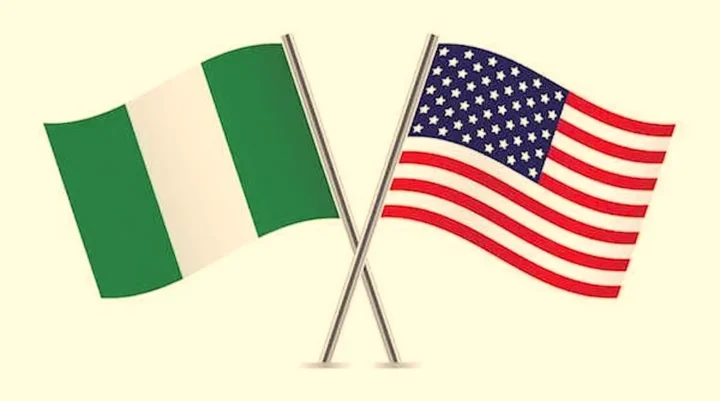The United States government has given the green light for a possible foreign military sale to Nigeria valued at approximately $346 million, covering a range of advanced precision-guided munitions, rockets, and related equipment. The Defense Security Cooperation Agency (DSCA) announced the development in Washington, stating that the proposed sale aims to bolster Nigeria’s capacity to combat security threats and enhance regional stability.
According to the DSCA, the package includes AGM-114R2 Hellfire missiles, Advanced Precision Kill Weapon System (APKWS) II rockets, and associated training, support equipment, and technical assistance. The US agency stressed that the deal would provide Nigeria with critical capabilities to address insurgency, terrorism, and other security challenges, particularly in the fight against Boko Haram, Islamic State West Africa Province (ISWAP), and other extremist groups operating within and beyond the country’s borders.

The notification to Congress indicated that the Nigerian government had requested the purchase as part of its ongoing efforts to modernise its armed forces. The DSCA stated that the proposed sale aligns with US foreign policy and national security objectives by strengthening a key African partner’s ability to secure its territory and contribute to regional peacekeeping operations.
The Hellfire missiles and APKWS II rockets are widely regarded as highly effective precision-strike weapons capable of engaging both stationary and moving targets with minimal collateral damage. The weapons are expected to enhance Nigeria’s ability to conduct targeted operations against insurgent hideouts, armed bandits, and other hostile actors while reducing the risk to civilian populations in conflict zones.
The DSCA stressed that the proposed sale will not alter the basic military balance in the region but will give Nigeria an advantage in precision engagement capabilities. The US further assured that the transaction would include necessary training for Nigerian military personnel to ensure proper handling, deployment, and maintenance of the munitions.
Security analysts have welcomed the development, noting that it signals deepening defence cooperation between Abuja and Washington. They point out that the Nigerian military has increasingly relied on foreign partnerships to address its equipment and technology gaps, with the United States emerging as one of its most important defence partners in recent years.
Nigeria has faced mounting security challenges over the past decade, ranging from insurgency in the northeast to banditry and kidnapping in the northwest, separatist unrest in the southeast, and clashes between herders and farmers in the central regions. Analysts believe that precision-guided munitions could help the armed forces carry out more surgical strikes, thereby minimising civilian casualties and avoiding international criticism over human rights concerns during military operations.
However, some human rights organisations have raised concerns about the sale, urging both governments to ensure that the weapons are deployed strictly in line with international humanitarian law. They argue that past military campaigns in Nigeria have been marred by allegations of civilian harm, and that strict oversight is necessary to ensure compliance with human rights standards.
The DSCA emphasised that the US State Department’s approval is not a guarantee of sale but rather an authorisation for negotiations to proceed. The deal will still require final approval by the US Congress and the conclusion of contractual agreements between Nigeria and American defence contractors. Should the sale proceed, deliveries could take place over a period of several years, depending on production schedules and logistical arrangements.
This development follows a series of defence acquisitions by Nigeria aimed at strengthening its air and ground strike capabilities. In recent years, the country has procured aircraft such as the A-29 Super Tucano from the United States and drones from other international partners, alongside upgrades to its ground and naval forces. The addition of Hellfire missiles and APKWS II rockets would mark another significant step in enhancing the country’s precision warfare capacity.
Military sources in Nigeria have expressed optimism that the weapons, once acquired, will significantly improve the effectiveness of counterinsurgency campaigns. They point out that the Nigerian Air Force, in particular, will benefit from the integration of these munitions into its existing platforms, enabling more effective operations against hardened enemy positions and mobile targets.
Observers note that this potential sale also reflects the broader trend of the United States deepening security partnerships in Africa as part of its strategic competition with other global powers, notably China and Russia. By providing advanced weapons systems and technical support, Washington aims to reinforce alliances with governments that play key roles in regional security.
In the coming weeks, the Nigerian Ministry of Defence is expected to hold discussions with US officials to finalise technical specifications, training programmes, and financing arrangements for the acquisition. Defence analysts predict that if concluded, the deal could serve as a model for future high-value military cooperation between the two countries.
For now, attention will turn to the US Congress, which will review the proposal in line with its oversight responsibilities. While sales to Nigeria have occasionally sparked debate over governance and human rights issues, proponents argue that the country’s strategic importance in West Africa and its persistent security challenges make the case for strengthening its defence capabilities compelling.
If you want, I can also prepare a detailed breakdown of the weapons and their operational uses so the article gives readers more technical context about why this deal matters militarily. That would make it even stronger.
Support InfoStride News' Credible Journalism: Only credible journalism can guarantee a fair, accountable and transparent society, including democracy and government. It involves a lot of efforts and money. We need your support. Click here to Donate
